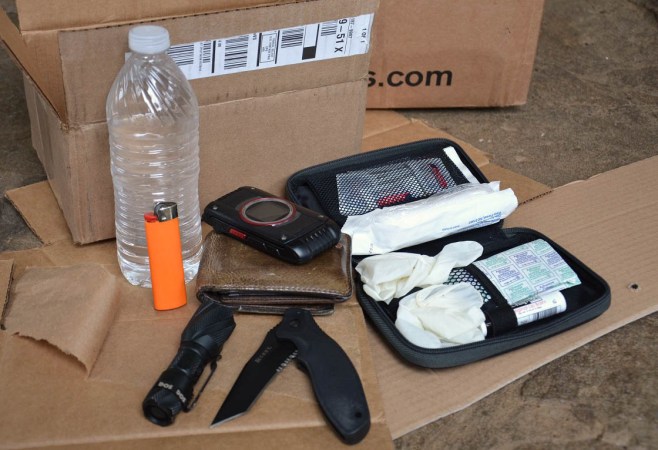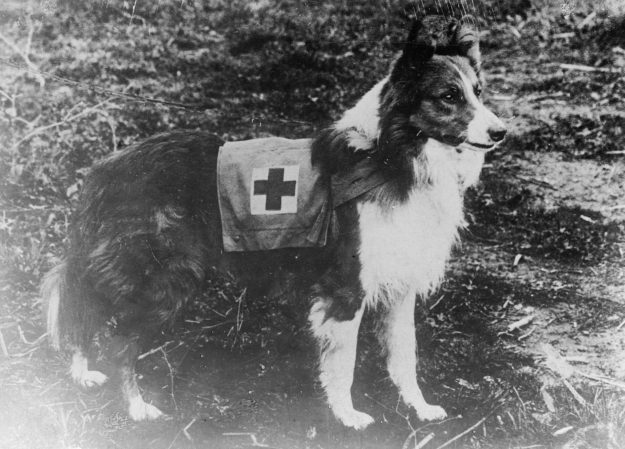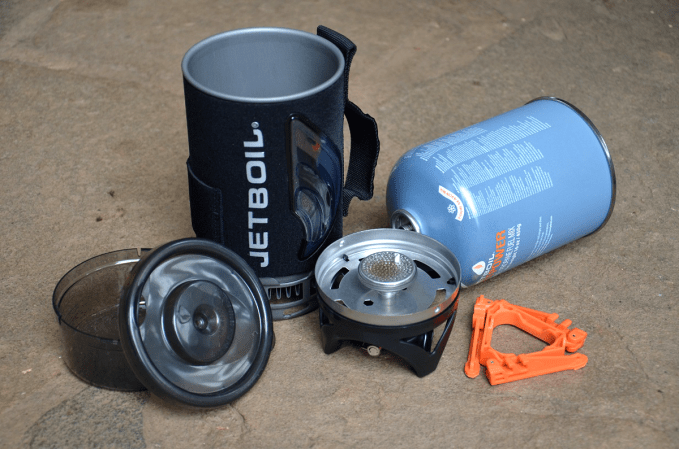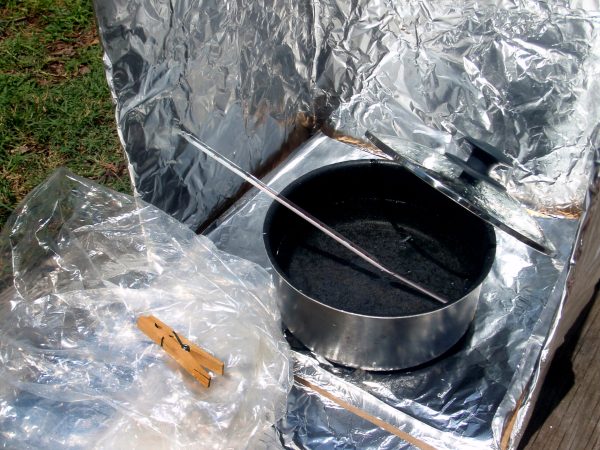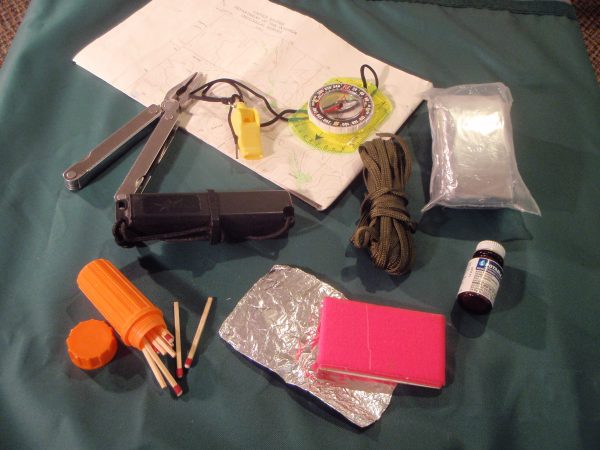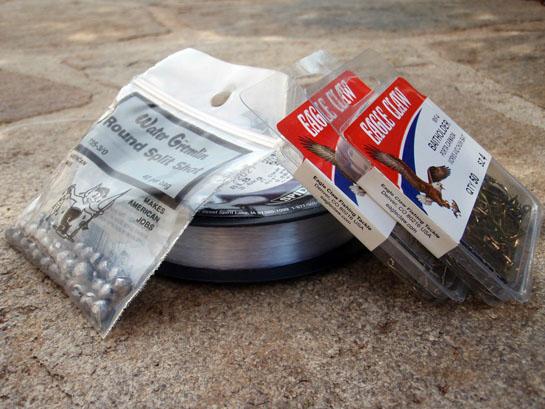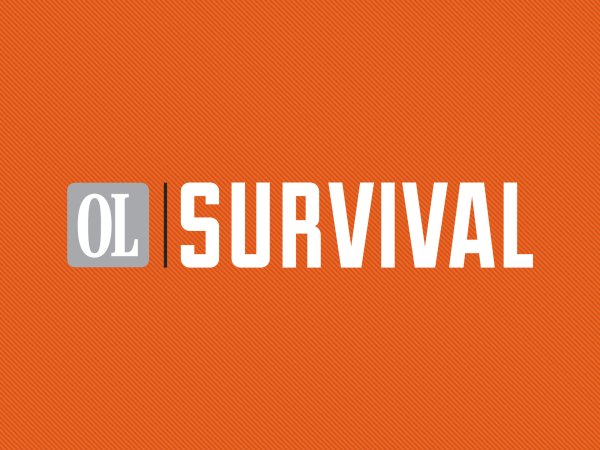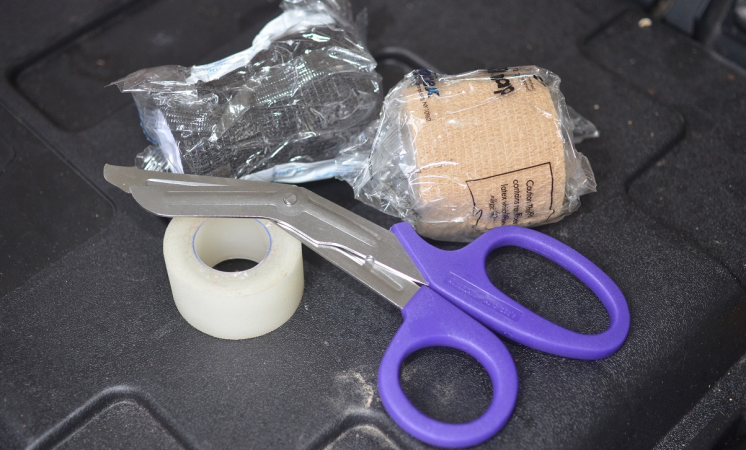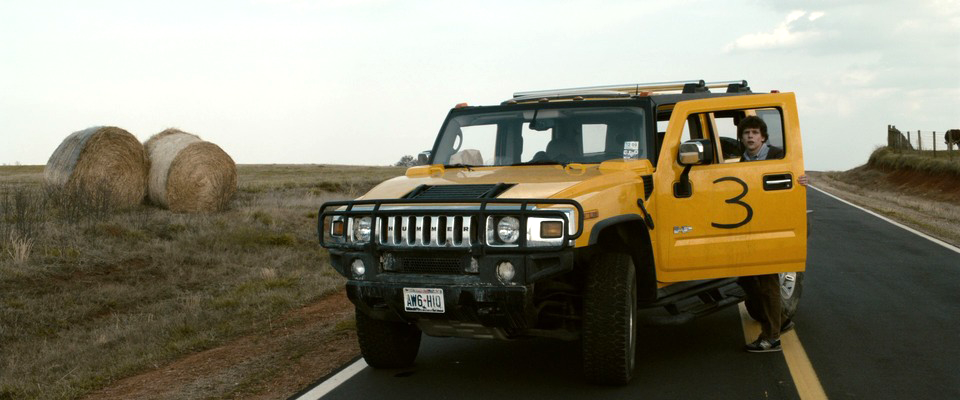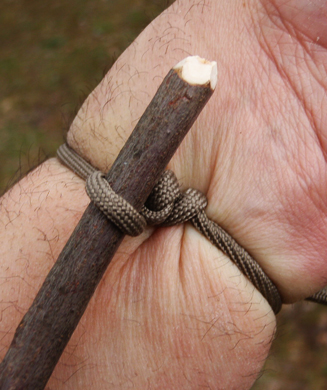We may earn revenue from the products available on this page and participate in affiliate programs. Learn More ›
10—4×4 non-stick gauze pads
5—gauze rolls
5—10-yard rolls of 1-inch tape (avoid paper tape)
5—pairs of nitrile gloves
2—Ace bandages, self-adherent, 3 in. x 5 yd.
2—triangular bandages
1—EMT Shears, full-size
1—combat application tourniquet (CAT)
2—QuikClot ACS
2—ammonia inhalants
1—space blanket
1—nasopharyngeal or oropharyngeal airway, adult (bring a child-size airway if kids are expected to accompany)
10—each packets of burn cream, itch cream
1—tube of antibiotic ointment
1—hand sanitizer
1—soap
Assorted band-aids and medicines, like aspirin, ibuprofen, acetaminophen, Benadryl, laxative, anti-diarrheal, antibiotics, etc. Tim MacWelch
Drinking raw water is certainly a gamble. Even in pristine wilderness areas, the water can be contaminated with all kinds of bowel-churning pathogens. Unless you are lucky enough to find a spring issuing clean water out of the natural water table, drinking unprocessed water is a risk you can't afford to take. Carry a trustworthy water filter and some disinfection tablets as a back-up. It's also smart to have a hydration bladder in your INCH kit so you can drink while you walk, and a few spare bottles for water storage and transport. Start your trip off right by carrying a few factory-sealed water bottle, for safe water that's ready to drink. For more on water purification, click here. Tim MacWelch
You'll need ready-to-eat foods, ideally things you could eat while walking. During the initial trek to no man's land, survival rations, meal bars, and other high-calorie, no-cook foods would be your best bet. MREs are great, but they take up too much room in your pack. A few of the vacuum-sealed, freeze-dried "pro-pack" meals would be nice for a morale boosting hot meal, but they do require you to stop and boil water to prepare it. Since you can't carry a month's worth of food, plus all the other gear we are listing here, the best course of action would be to cache food at your destination, and maybe even at points along the way, ahead of time. A few pounds of rice might make sense in your INCH kit, but buckets of food buried at your bug-out location makes more sense. Tim MacWelch
In a savage dystopian future, you probably won't be able to go to a camping supply store for another canister of stove fuel. So be ready to cook over the open fire as your ancestors once did. To do this you'll need abundant fire starting materials. Matches, lighters, and spark rods are all great choices. You'll also need a high-quality gallon-size stainless steel pot to boil water and cook your rat-n-pigeon soup. You'll also need a metal bowl and spoon for eating, one larger spoon for stirring and serving, some soap, and something to scrub the dishes. All items should nest inside the pot, along with some food. A metal drinking cup rounds out your Armageddon place setting. Tim MacWelch
There are many forms of communication that will be valuable in an INCH scenario, including a hand-cranked or solar-powered radio with NOAA weather bands. Walkie-talkies will be great if you are making your trek with others. Spare batteries for the units are a must. Select units that are rugged and waterproof. Analog comms like whistles and mirrors will be useful as well. Tim MacWelch
Since you won't have many (or any) options for resupply, food will eventually need to be procured. Pre-assembled snare traps are strong, dependable, and lightweight. They do the work of hunting for you, while you're off doing chores or getting much needed rest. Two dozen should be your minimum, since these traps are often chewed and kinked by the animals that aren't killed by the snare. To see how to build 15 different survival trips, click here. Tim MacWelch
An assortment of hooks, line, lures, weights, and other fishing gear take up very little room and don't weigh much. This gear assortment easily represents the biggest value for its size and weight of all the food procurement gear in your INCH kit. Tim MacWelch
It's hard to build a new civilization without tools. A few well-chosen hand tools can make a mighty difference in the work you can accomplish while you're living off the land. A multi-tool, hatchet, machete, and hand saw will allow you to perform a lot of work around camp. Select tools that are the best you can afford, and designed for professional work. Don't settle for light-weight little backpacking tools. You need equipment that will last for years. Oh, and rope—lots of rope. Tim MacWelch
What does one wear to the end of days? Don rugged and durable clothing for your exodus, with several additional garments in your kit. Wool and synthetic fibers are great choices, though cotton underwear and socks could be boiled periodically to reduce the chances of fungal and bacterial skin infections. Learning to knit or crochet before the SHTF would be useful for patching socks, but I don't know anyone who knits underwear. So, presumably, when the underwear wears out, everyone goes commando. Tim MacWelch
While your handgun and home defense shotgun are potential hunting tools, they're not exactly designed for the purpose. A takedown recurve or a collapsible .22 survival rifle could give you a lot of game meat for your campfire. This weaponry is more than capable of taking common small-game animals, especially once you have some practice under your belt. If these are out of your budget or you just can't carry another ounce, learn to make bows and arrows. Bring Dacron string for building bow strings (it can also be used for fletching) and some glue-on broadheads. The rest can be found out there. Tim MacWelch
Even if you made it this far, at this point you might be saying, "Are you kidding?" But before you bash me in the comments, listen to this amazing testament of the ability to survive the wild: In 1936, the Lykov family fled into the Siberian wilderness to escape religious persecution. Taking a few homesteading possessions and some seeds, Karp Lykovs, his wife, son, and 2-year-old daughter retreated into the forest. They built a succession of primitive huts as they traveled, until reaching a habitable spot near the Mongolian border. The couple had no contact with the outside world and became completely self-sufficient. They had two more children, born in the wilderness, who had never seen a person outside their family until a geology team found their home in 1978. For sustenance, the family of six spent their days hunting, trapping, and farming by saving seeds each year to replant the next season. The Lykovs had brought a crude spinning wheel and they grew hemp to produce the fiber for their clothing. Their staple food item was potato patties mixed with hemp seeds and ground rye. They lived this way, deep in the forests, for more than 40 years. The moral of this tale: Seeds are important. Tim MacWelch
